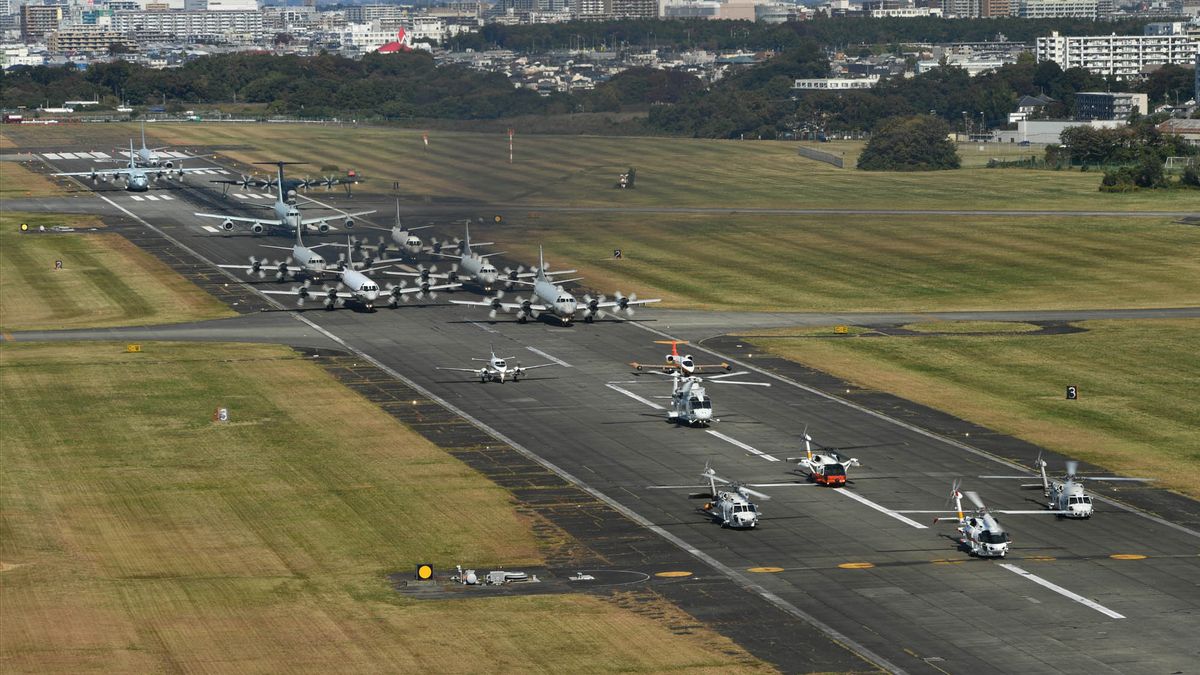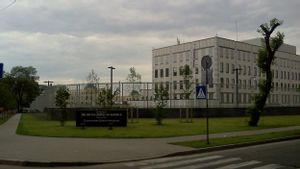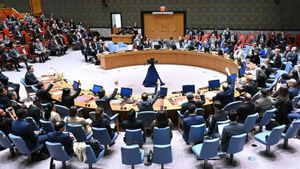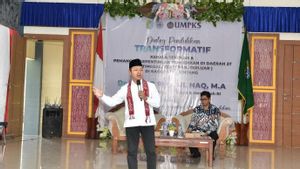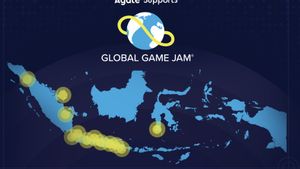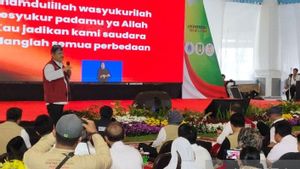JAKARTA - A Japanese court on Wednesday ordered the government to pay compensation to residents around the Atsugi Air Base near Tokyo for excessive noise, but rejected their call to suspend flights of the Japan Self-Defense Forces (SDF) and the United States military.
The Yokohama District Court ordered the state to pay around 5.9 billion yen (Rp607,442,760,000.) for past disruptions, but rejected plaintiffs' demands for compensation for future noise pollution, quoted from Kyodo News November 21.
In a lawsuit filed in 2017, a group of about 8,700 plaintiffs demanded that the state halt night and early morning flights at the base, paying a total of 13.1 billion yen in compensation for past and future noise-related health damage.
The airport, located between the densely populated city of Yamato and Ayase in Kanagawa Prefecture, was jointly used by the US SDF and military.
However, Chief Judge Nobuhiro Okada acknowledged the "very public" nature of the SDF flight in deciding to cancel the suspension.
It was the first decision since the completion of the US transport plane transfer in March 2018, known for raising a loud voice, from Atsugi to another US military base in Iwakuni, western Japan, as part of the restructuring of US troops.
In the trial, the fifth of a series of hearings on vote pollution at the base since the 1970s, the government argued that noise levels had declined significantly after the transfer.
Taking into account reduced noise pollution and other factors, the judge also said, it could not be said that SDF flights were "very invalid based on social norms."
Regarding the military plane of Uncle Sam's country, the court said the Japanese government had no authority to limit their operations.
During the trial, plaintiffs living in eight neighboring cities, including Yamato and Ayase, argued that noise pollution continued as US fighter jets and Osprey transport aircraft still arrived at the base.
SEE ALSO:
In the fourth lawsuit, district courts and high courts ordered the suspension of SDF flights. However, the high court overturned the decision, ordering the state to pay compensation for past disruptions.
Several previous decisions ordering the state to pay compensation have been finalized, with the Japanese Government asking the United States to bear the burden based on the Japanese-US Forces Status Agreement.
However, the US Government has not made any payments until February, according to the Japanese Government.
The English, Chinese, Japanese, Arabic, and French versions are automatically generated by the AI. So there may still be inaccuracies in translating, please always see Indonesian as our main language. (system supported by DigitalSiber.id)
